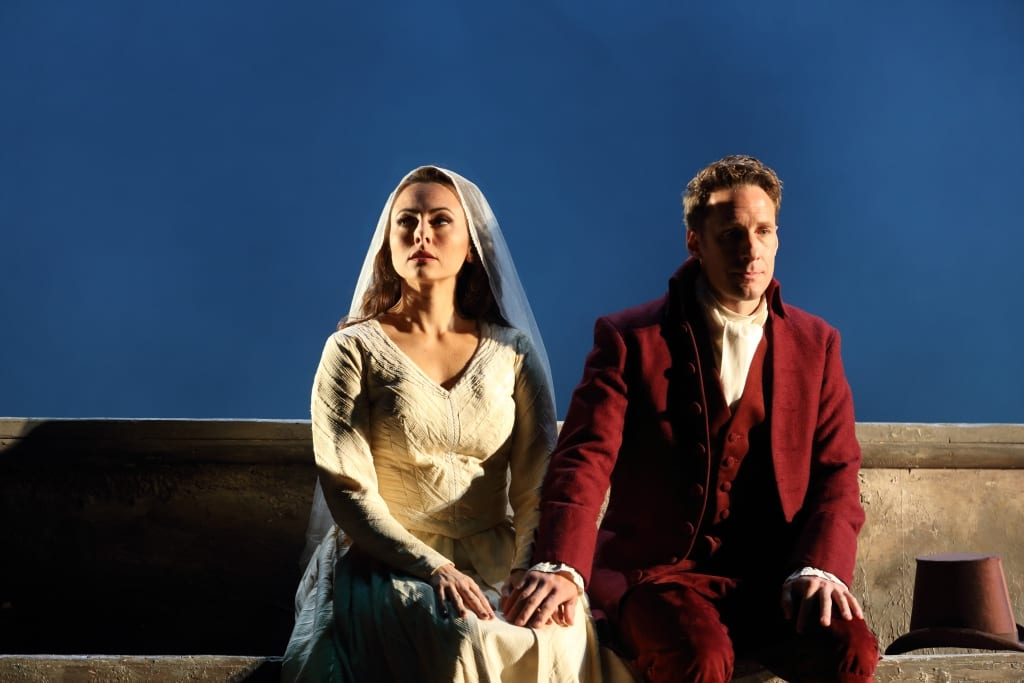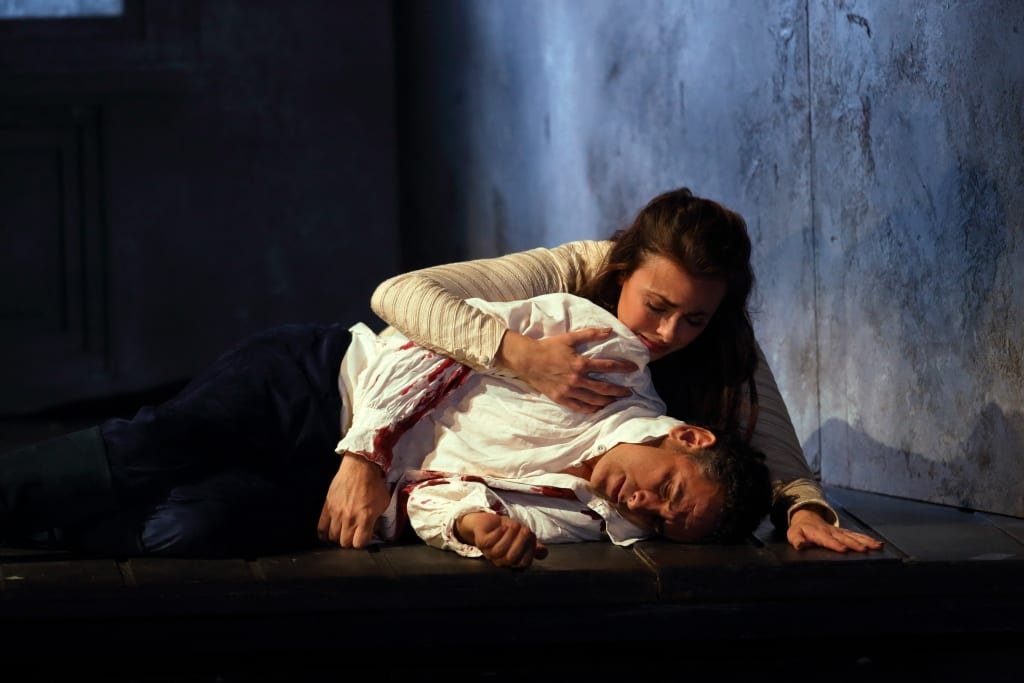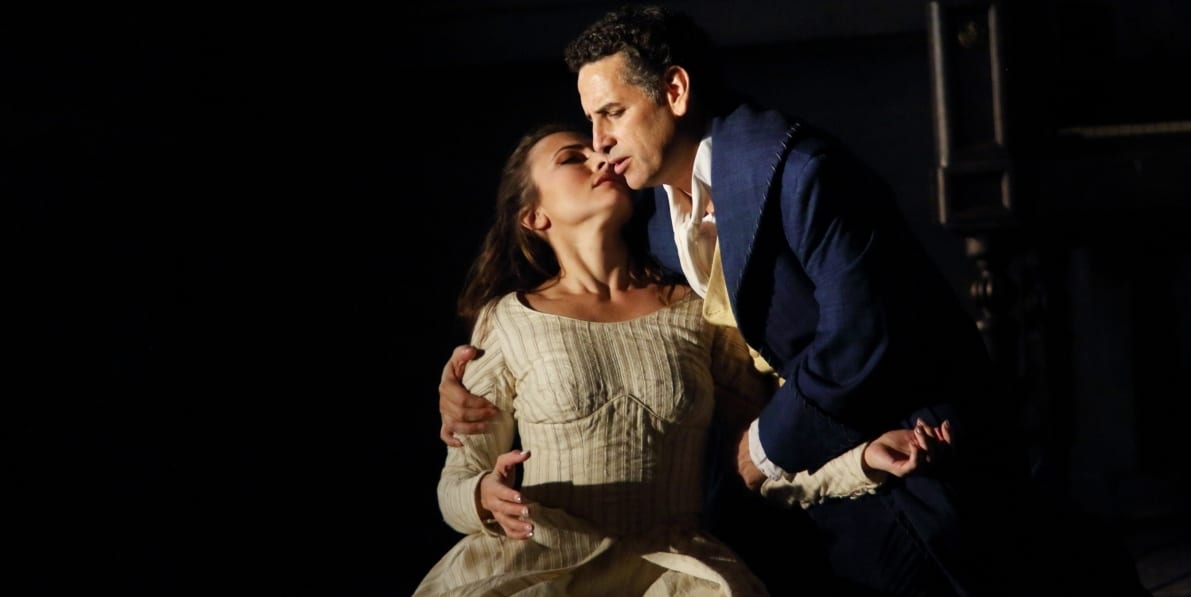Can you imagine your novel being universally admired throughout Europe and wherever Western Culture prevailed as the most popular of the time? Well, everyone who could read, including Napoleon, loved Goethe’s The Sorrows of Young Werther (Die Leiden des junges Werther) when it was published in 1774. Years later Goethe wrote:
“Do you know which book Bonaparte took with him in his luggage to Egypt? My Werther!” (Conversations with Eckermann, 7 April 1829). Napoleon and Goethe even met and discussed Werther.
It is not surprising that a masterly score to a libretto based on Goethe’s epistolary novel, is by a French composer. Jules Massenet’s music is rich with French lyricism and poetry. The vocal style is more classical than Italian. Massenet breathes new life into the love-forlorn poet and philosopher, a romantic young man who cannot contemplate life without the woman he adores, Charlotte.
The French film director, Benoït Jacquot’s 2004 production, revived by Andrew Sinclair, is enchanting in its simplicity and its ability to focus attention on the unfolding emotional turmoil of the leading characters. Benoit’s interpretation is supported by sets and costumes mirroring the 18th century, the era in which the narrative is set. The excellent Royal Opera House orchestra is sensitively and idiomatically conducted by Edward Gardener. The superb cast that includes Juan Diego Flòrez in the title role, Isabel Leonard as Charlotte, Jacques Imbrailo as Albert, Charlotte’s husband, and the delightful Heather Engebretson as Charlotte’s 15 years old sister, Sophie; they all expand the spectrum in which the desperate young couple operate but also articulate the collateral pain inflicted on Sophie and Albert.

This production offers rich characterizations and marvellously brings out the sturm und drang of late 18th century European society, in which passions collide with convention and honour. In the opening scene there is tremendous domestic joy. The frivolity of the scene and near pastoral mood gently but surely changes as the spotlight turns to the two leading protagonists.
On the opening night, as often happens, some of the leading singers took time to get into the full swing of their performance. Once the jitters lifted, however, the opera was an unconditional treat.
The 46 year-old Peruvian tenor, Flòrez, through his lyric voice, rather than his acting, beautifully conveyed the self-centred poet, the increasingly desperate young Werther. His contemplations on nature soon transfer to musing on Charlotte, the young woman he has grown to love and admire to self-destraction. Flòrez brings the agony and introspective brooding of Werther to life. His duets with Isobel Leonard galvanized the magnitude of this tragic love. The American mezzo-soprano, in her ROH debut, offers a fine portrait, vocally and dramatically, of Charlotte. Her tender radiance at the outset evolves into an almost stoic effort to keep her love under control, so that it will not undermine her duty; and once that self-discipline is breached, she gives way to a flood of liberated passion in her soliloquy in Act III. Leonard magnificently and movingly fulfils her role.

Heather Engebretson skillfully brings to the fore her character, Charlotte’s younger sister Sophie. Her carefree and bright persona shines through and stands in clear contrast to Werther’s brooding mood. Jacques Imbrailo, a South African baritone, is physically and vocally striking as Charlotte’s husband Albert. The children who perform as Charlotte’s six siblings complement the ensemble delightfully and, together with the other members of the cast, at times provide some welcome light relief.
The final Act is powerfully and exquisitely executed. It left the audience deeply moved and applauding the ensemble energetically, and in particular the leading performers.

